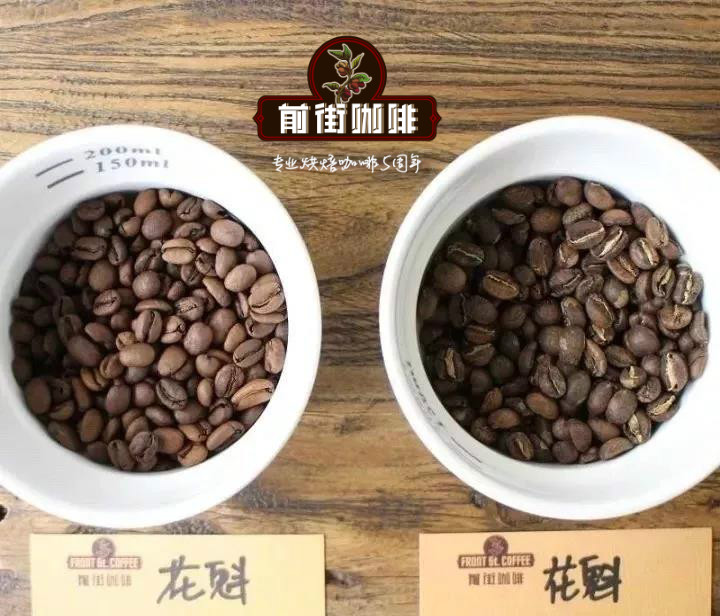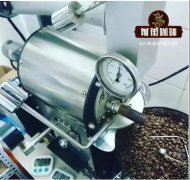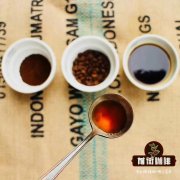Introduction to the producing area of Minas Coffee Bean in Brazil what are the characteristics of Brazilian coffee bean taste

Professional coffee knowledge exchange more coffee bean information please follow the coffee workshop (Wechat official account cafe_style)
Brazil is vividly compared to the "giant" and "monarch" of the coffee world. There are about 3.97 billion coffee trees there, and small farmers now grow 75% of Brazil's total coffee production. The number of coffee producers in Brazil is twice or even three times that of Colombia, the second largest coffee producer in the world.
Unlike in the past, Brazil's economy is now less dependent on coffee, which accounts for only 8% to 10% of GDP. Before World War II, Brazil accounted for 50% or more of the world's coffee production, and now it is close to 30%. But the country's impact on the world's coffee, especially on coffee prices, is significant. For example, two frost disasters in 1994 caused a sharp rise in global coffee prices.
Including all coffee beans grown in Brazil, except for Santos, Brazilian beans are mostly "cheap and good" coffee. Can be used for mass production of comprehensive coffee beans, most of which are re-roasted. The main raw material of instant coffee is also Brazilian coffee beans. When the coffee bean germ is very fresh, it is artificially refined and naturally dried in the vulva for about 60-70 days, so that the sweetness of the pulp fully infiltrates into the bean. Features: coffee beans have a strong aroma, moderate bitterness, high texture acidity, soft overall taste, low acidity and endless aftertaste. The taste of Brazilian coffee has a low sour taste, with the sweet and bitter taste of coffee, the entrance is very smooth, but also with a hint of grass aroma, slightly bitter in the fragrance, smooth and smooth, with a pleasant aftertaste. There are no outstanding advantages for Brazilian coffee, but there are no obvious drawbacks, such as mild and smooth taste, low acidity and moderate mellow. Brazilian coffee generally refers to coffee produced in Brazil. There is a wide variety of Brazilian coffee, the vast majority of which are unwashed and sun-dried, classified according to the name of the state of origin and the port of transport. Brazil has 21 states and 17 states produce coffee, but four of them produce the most coffee.
Many people say that Brazilian coffee has no outstanding advantages, and then it can not be generalized, not to mention some fine manor beans, even though the flavor of ordinary commercial beans is not obvious, but it has nothing to do with Brazilian coffee. All the soft flavors are mixed together, but have a unique charm. This bean is eye-catching, changing the soft flavor of Brazilian coffee. It has sweet and smooth fruit sweetness, obvious nutty flavor, balanced and supple acidity, weak and clean bitterness, rich chocolate aroma and nutty flavor, bright and refreshing taste, the original coffee business empire also has such delicate works.
Related recommendation: Brazilian South Minas Coffee introduces Minas as synonymous with Brazilian boutique coffee.
Important Notice :
前街咖啡 FrontStreet Coffee has moved to new addredd:
FrontStreet Coffee Address: 315,Donghua East Road,GuangZhou
Tel:020 38364473
- Prev

How to grade Brazilian boutique coffee beans? what grade does Brazilian Minas coffee belong to?
Professional coffee knowledge exchange more coffee bean information please follow the coffee workshop (Wechat official account cafe_style) boutique coffee (specialty coffee), also known as specialty coffee selection coffee. It refers to coffee made from a small number of raw beans with excellent taste grown in an ideal geographical environment. Depending on the special soil and climatic conditions in which they grow.
- Next

Brazilian Minas Coffee HIU Micro-batch Spring Manor washing Huang Kaduai characteristics of taste and flavor brewing
Professional coffee knowledge exchange more coffee bean information please follow coffee workshop (Wechat official account cafe_style) factory name: coffee factory address: Guangzhou Yuexiu District Yandun Road Baoqian Street 10 Qianjie Cafe manufacturers contact: 20-38364473 shelf life: 90 net content: 227g packaging: bulk coffee beans ripe degree: coffee cooked beans contain sugar: sugar-free origin:
Related
- Detailed explanation of Jadeite planting Land in Panamanian Jadeite Manor introduction to the grading system of Jadeite competitive bidding, Red bid, Green bid and Rose Summer
- Story of Coffee planting in Brenka region of Costa Rica Stonehenge Manor anaerobic heavy honey treatment of flavor mouth
- What's on the barrel of Blue Mountain Coffee beans?
- Can American coffee also pull flowers? How to use hot American style to pull out a good-looking pattern?
- Can you make a cold extract with coffee beans? What is the right proportion for cold-extracted coffee formula?
- Indonesian PWN Gold Mandrine Coffee Origin Features Flavor How to Chong? Mandolin coffee is American.
- A brief introduction to the flavor characteristics of Brazilian yellow bourbon coffee beans
- What is the effect of different water quality on the flavor of cold-extracted coffee? What kind of water is best for brewing coffee?
- Why do you think of Rose Summer whenever you mention Panamanian coffee?
- Introduction to the characteristics of authentic blue mountain coffee bean producing areas? What is the CIB Coffee Authority in Jamaica?

